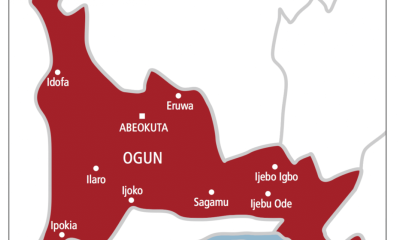News
FEC Approves N21bn For Ilorin-Omuaran-Kabba Rd, N589m For EIA On Transmission Line

The Federal Executive Council (FEC) on Wednesday approved the construction of the section 1 of the Ilorin-Omuaran-Kabba Road for N21 billion to link Kwara and Kogi states.
The Minister of Power, Works and Housing, Mr Babatunde Fashola, said that FEC also approved a N589 million consultancy for Environmental Impact Assessment on the 200 kilometre Olorunshogbo Transmission line.
Fashola said the projects were consistent with the programmes of the federal government to reduce travel time and improve power supply to parts of the country.
“Council considered and approved the construction of Ilorin- OmuAran-Kabba Road, Section 1 of it in order to complement the ongoing works on the Kabba-Egbe road to link Kwara and Kogi states.
“The justification for the memo and consequent approval is consistent with our promise to continue to reduce travel time to ease the cost of doing business and the cost of goods and services.
“The second approval was for consultancy services for professionals to conduct line-route studies, Environmental Social Impact Assessment and resettlement action plan as well as environmental social management plan.
“(It) is in order for us to access the Japanese International Cooperation Agency (JICA) loan to support the Transmission Company of Nigeria (TCN) to continue its transmission grid expansion programme.’’
The Minister said that the TCN projects covers the routes which the transmission line would pass through.
He added that when the 200 kilometre line would enable TCN to evacuate power from the Olorunshogbo power plant to industrial clusters in Ogun and parts of Lagos state.
The Minister of Agriculture, Chief Audu Ogbe, also said that the committee set up on the rising cost of food prices also submitted an interim report to the Council.
According to him, the committee identified the causes of the rise in prices as high cost of transportation and illegal taxation by states and local governments on producers and transporters.
He said that the good thing was that there was no real shortage of food adding that Nigerians were groaning under the pain of high prices.
He attributed the high cost of transportation to the complete reliance on roads for evacuation of produce coupled with high cost of diesel and difficulties of trucks to move to places at the old fares.
“So we considered the following alternatives using railway wagons on the current railway networks as we did when we did before. When we moved cattle from the North West to Lagos, we brought down the costs.
“We avoided the multiple taxation visited on transporters in this country by local governments, road blocks, most of them not very legal, along the high ways, which delays movement and causes damage to a lot of foods like tomatoes.
“We decided to work with the state governments and the police to reduce those delays and we are going to adapt what they have in Cote D’Ivioire where trucks carrying food are given labels.
“In fact in Cote D’Ivoire, they cannot be stopped for more than 10 minutes anywhere even if something serious has happened.
“The security agencies will follow them to the port or to their destinations and come back to investigate whatever happens.
“Finally, we shall be looking into our reserves if the situation in the next few days persists then to see what we can bring out to lower the prices. (This is) because another round of harvests would be coming up again by the end of March.
The Minister said there was really no starvation in the country, adding that there was also a lot of pressure on Nigerian food from West, North and Central Africa.
“Our food production is very robust and we are doing pretty well,’’ he added.
-

 News4 days ago
News4 days agoBad Roads In Obaagun Township: An S.O.S. to Governor Ademola Adeleke By Dr. Wale Atoba
-

 News3 days ago
News3 days agoWomen Empowerment Takes Center Stage As UACC President, Rev’Owoyemi Declares Open 2024 UACC Women’s Conference In Ibadan
-

 News4 days ago
News4 days agoCSO Faults FIJ’s Reports On Ibrahim Egungbohun Dende, Says It’s Campaign Of Calumny
-

 Foreign News5 days ago
Foreign News5 days agoHow Nigerians Who Want To Japa To UK Can Become British Citizens



